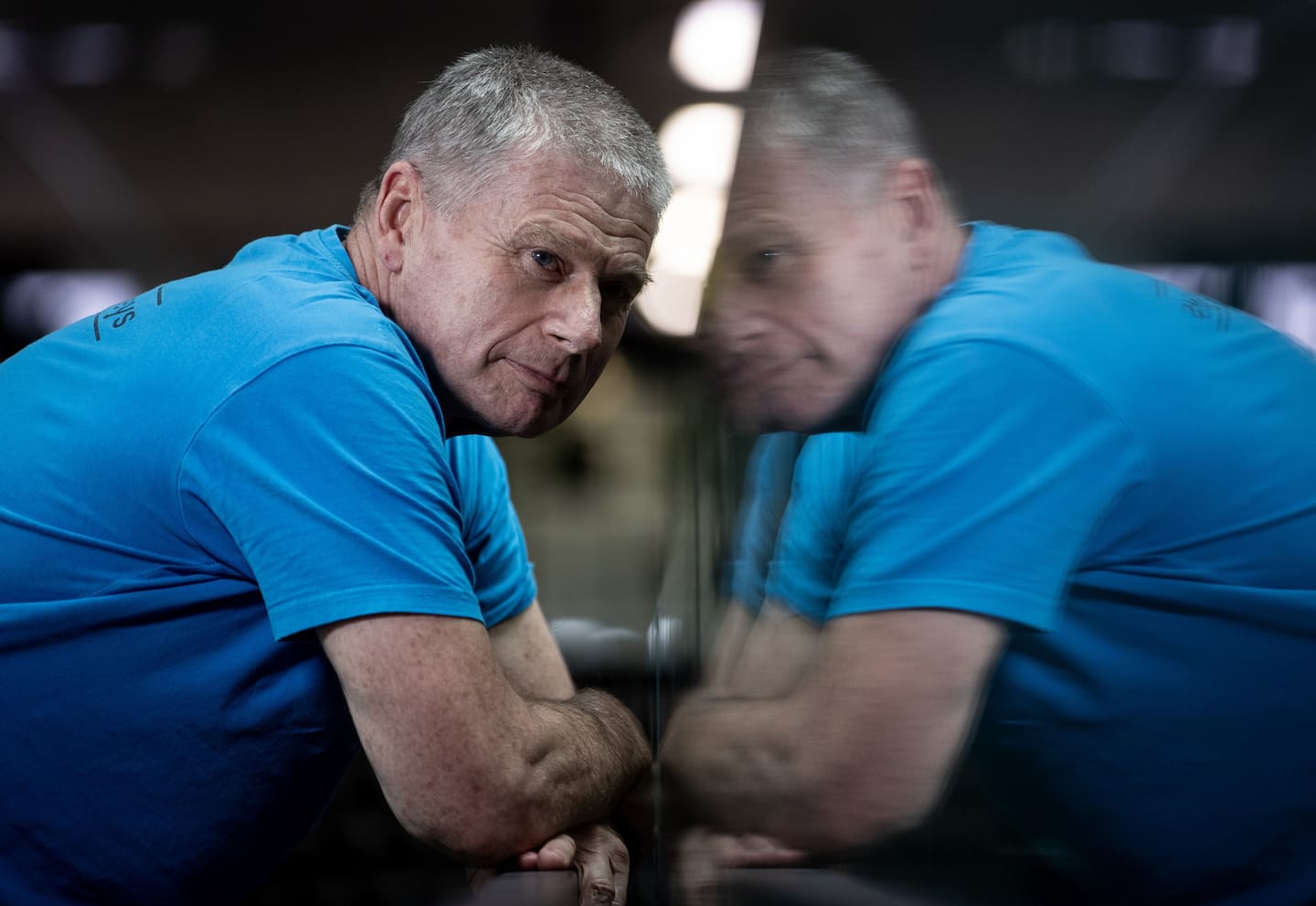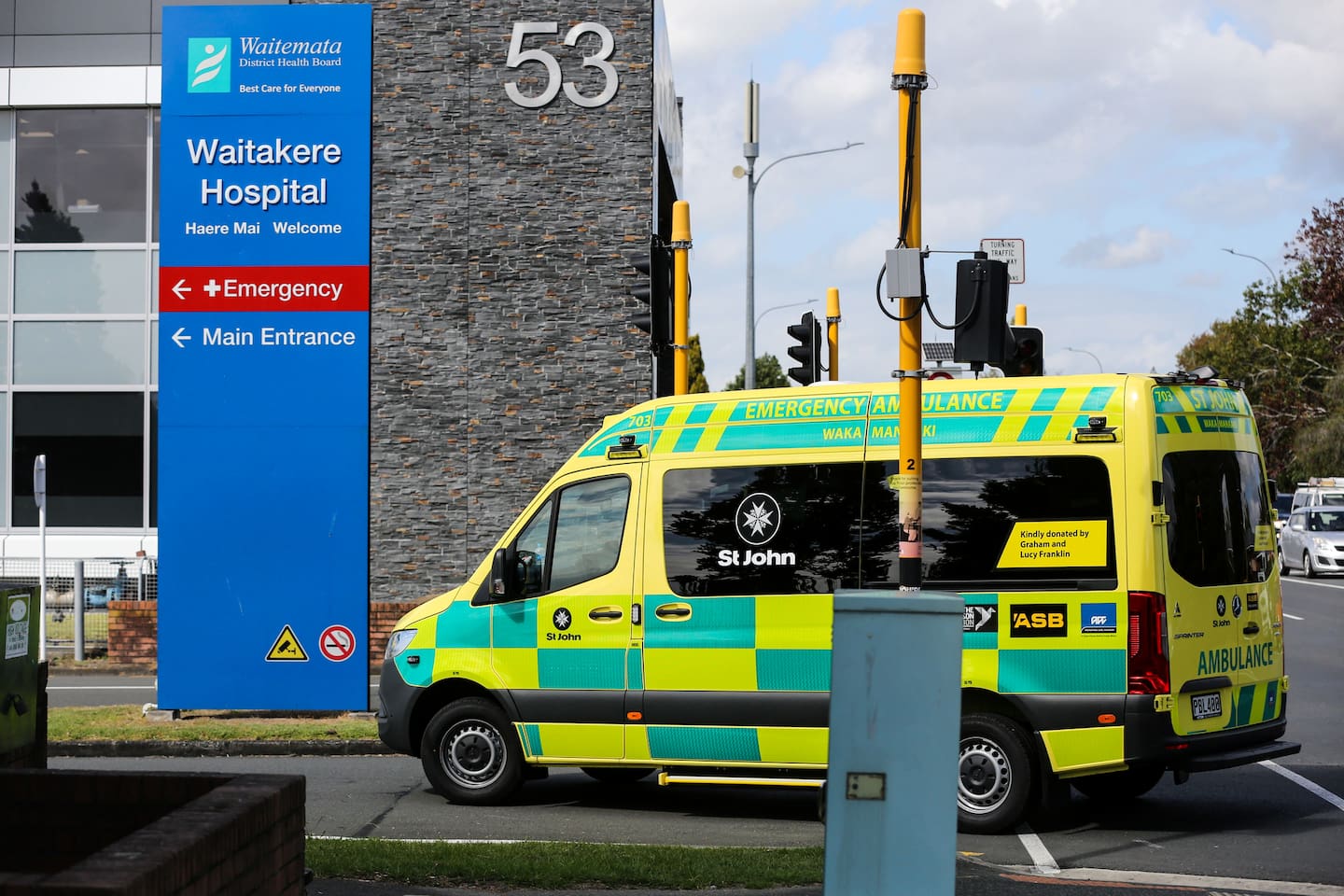- More than 30 staff at Waitākere Hospital refused to care for a racially abusive patient in a bid to get hospital managers to defuse the situation.
- The male patient had asked for white-only staff and made racist and sexual remarks over a period of six weeks.
- It follows another controversial incident at North Shore Hospital, and workforce leaders say it further highlights the need for clear policies and processes on racial abuse.
A patient who racially abused staff at Waitākere Hospital and asked for white-only nurses was eventually refused care by health workers, forcing hospital management to intervene.
More than 30 staff at one of the hospital’s wards took the unusual step of signing a cease-work order in July after the patient had reportedly abused them over a period of about six weeks.
 Ben Basevi said staff had filed incident reports but the actions taken by the hospital had not stopped the abuse. Photo / Dean Purcell
Ben Basevi said staff had filed incident reports but the actions taken by the hospital had not stopped the abuse. Photo / Dean Purcell
Their drastic action prompted hospital managers to escalate their response and defuse the situation.
Health workforce leaders say Health NZ-Te Whatu Ora needs clear, national guidelines for responding to racial discrimination against staff, saying it should not have required a cease-work order to resolve the incident.
It comes after a Herald report earlier this month revealed leaders at North Shore Hospital agreed to a patient’s request to have no Asian staff at their surgery - a decision which angered workers and was condemned by unions.
Health NZ would not discuss specific details of the Waitākere Hospital case, citing patient privacy.
But the Herald understands that the male, Pākehā patient racially abused Pacific Island and Filipino staff over a period of at least six weeks, beginning in May. The patient demanded that he only be cared for by staff of European descent and made sexually suggestive remarks.
New Zealand Nurses Organisation (NZNO) delegate Ben Basevi said staff had filed incident reports but the actions taken by the hospital had not stopped the abuse.
He claimed that staff who were being harassed were told to leave the patient’s room for five minutes before returning.
“We found the situation to be so dire that after investigation we advised staff to undertake a cessation of work, which they did,” Basevi said.
That prompted hospital management to review its processes and put in place a much stronger management plan. The patient was told that if he did not change his behaviour he could face a range of consequences, including being discharged or referred to police.
“This fixed the situation,” Basevi said.
 More than 30 staff signed the cease-work order at Waitakere Hospital in July, the NZNO said. Photo / Sylvie Whinray
More than 30 staff signed the cease-work order at Waitakere Hospital in July, the NZNO said. Photo / Sylvie Whinray
Health NZ has responded to the North Shore and Waitākere incidents by saying that it has robust escalation protocols in place.
Basevi challenged this statement. While some workplaces - including Auckland Hospital - had detailed processes, he said there was no clear, national guidance for hospitals in dealing with racism against staff.
“The organisation has a number of policies that deal with violence at work, but there is very little in respect of dealing with racism.
“I’m not aware of any processes in place for dealing with racism that may come up, for example, when a patient in ED does not want to be treated by a particular race of healthcare practitioners.”
Association of Salaried Medical Specialists (ASMS) executive director Sarah Dalton said Health NZ appeared to be “lagging behind” other organisations when it came to providing a culturally safe workplace.
“I think that there should be structures in place that make it easier, not harder, when these situations arise for them to be dealt with safely and quickly.”
In a statement, a Health NZ spokesperson said the organisation regularly cared for patients who had varied and complex needs and had processes in place to ensure staff were safe and patients got the care they needed.
“This includes developing, executing and monitoring individual behaviour management plans for some patients.
“The nature of a hospital environment can be stressful at times, both for our staff who are working to provide quality care, and for our patients and whānau who are coping with illness or injury, and this can bring challenges.
“We remain committed and focused on ensuring everyone gets the care they need, as we manage these challenges.”
The spokesperson added: “Our kaimahi deserve to be able to come to work and to do their jobs safely, without fear of aggression, violence or racism”.
Health NZ also said there could be reasons for adverse behaviour, including brain damage or dementia. Basevi said they considered the patient’s condition when drawing up a plan and confirmed that he was mentally competent.
Under the consumers’ rights code, patients are entitled to express a preference about who is providing their healthcare and have that preference met “where practicable”.
Dalton, from ASMS, said she believed the intent of that clause was to cover situations such as intimate examinations, in which a patient could request a male or female doctor.
“I’m not sure that they had in mind that they would support a person with racist kind of views to only be seen by a doctor of a certain ethnicity.”
Isaac Davison is an Auckland-based reporter who covers health issues. He joined the Herald in 2008 and has previously covered the environment, politics and social issues. He has covered assisted dying issues since the End of Life Choice Act was first drafted.
Take your Radio, Podcasts and Music with you









